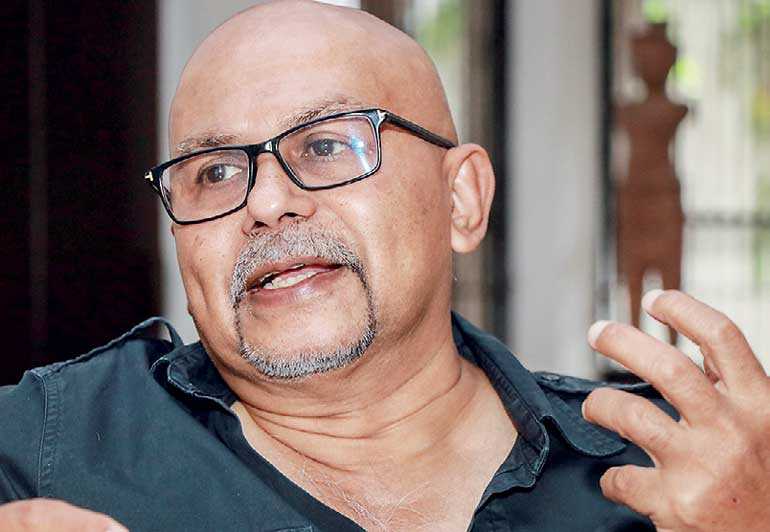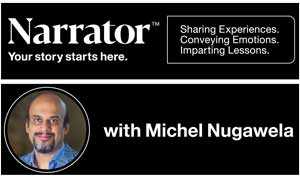Wednesday Feb 18, 2026
Wednesday Feb 18, 2026
Tuesday, 13 October 2020 01:26 - - {{hitsCtrl.values.hits}}

Dian Gomes
 While CEOs and leaders focus on the future, we’re asking them to pause, reflect on the past, and share the single-most important lesson they have learned.
While CEOs and leaders focus on the future, we’re asking them to pause, reflect on the past, and share the single-most important lesson they have learned.
Our lives and careers are works-in-progress and we will learn more in the future than we know now, but what insights could our younger selves – and other aspiring leaders – embrace and act on right now to live a more positive, productive, and empowered life?
Today, Michel Nugawela asks Dian Gomes for one piece of advice he would give his younger self if he could travel back in time.
Advice to my younger self and aspiring leaders: You can’t achieve what you need to in the corporate or any other field without people and a great team around you, so the most important thing to develop are your people skills. You need to be a good listener, and you need to have empathy.
When you're young, you think you've made it once you have qualified professionally. But the technical skills that you learn at school or in accounting – me being a FCMA; or the management skills at Harvard Business School, Wharton Business School and Ashbridge Business School – were just the entry tickets to the game. The game begins when you enter corporate life and you have to manage a large organisation or your own business!
You're also less inclined to listen when you're younger. You want to be the hero – the captain of the ship. Star performers have a very successful career up to the age of 40 but then they fail or get fired. You'll find the reasons are always behavioural. You can buy technical skills, but not people skills. No one can teach you those.
As you mature, the equation also changes. You now have to recruit the best talent – people who are better than you – which means managing them is also that much more difficult. You need fantastic leadership skills, transparency and integrity – everything people can look to you for.
Imagine you're playing on a team with the best – Warne, Tendulkar, Sangakkara, and Murali. You have such a strong team that you no longer get a chance to bat, but you only collect the trophy!
Advice to my younger self and aspiring leaders: The higher you go, the more firmly your feet need to be on the ground. That's where success comes from.
I think my experiences at MAS Slimline transformed me. There were 25 young graduates, 10 British expats and myself as the managing director when we set up a three-way joint venture with Victoria's Secret, Courtaulds Textiles and MAS Holdings in a remote village called Pannala 30 years ago.
At times, it felt like I was married to three women, all of whom lived in the same house. Any decision made for the benefit of the organisation could displease a partner. It was a huge learning experience for me in those early years.
I understood and drove the financial numbers very well, but that doesn't necessarily make you a good managing director. A senior consultant from our UK partner Courtaulds told me, "Dian, get your team right. Work on the composition so they gel together and you will automatically get the numbers."
As I matured, I learnt to talk less, listen more, and get the best advice from people. I worked on building a cohesive team. I worked on the people. I worked at the grassroots level. You needed those skills to run an organisation like MAS Holdings, which grew to become a $ 2.5 billion company when I retired 26 years later in 2016.
Every day brought human challenges. I had to develop new skills in fields like human resources management and organisational development. I led the organisation without a single trade union. I was virtually considered their union leader because I could empathise with the workforce, and also get them to be more productive as a single cohesive team.
I would say “Putha [son], why can't you run at 65% efficiency? What's the cause for running at 50%? If Susanthika can run the 200m and give of her best why can't you?” That's the type of conversation I enjoyed having; always inspiring and motivating the team. I hated management meetings, and spent as little time as possible seated in them. I scrapped the executive lunch room and ate with them in the canteen. What you eat, I eat; what I can do, you also need to do, so together we can be the best-in-class.
My phone number was accessible to over 40,000 people. If they were going through a rough patch they would phone me and I would always be there for them. In turn they were always there for me. This was the basis for a cohesive, egalitarian culture.
I was also criticised. Some thought my style of management was too unorthodox; others that I was a revolutionary. But it was very effective because I could hit the ground extremely fast. I was able to get my vision across 50,000 people within a matter of hours.
Advice to my younger self and aspiring leaders: Sometimes you have to play the father's role or the friend's role, at other times the managing director's role. You have to take all the experiences you learn in life and channel them into your leadership role.
Pannala was a very different world for me. I saw real life. We were privileged, the villagers faced overwhelming odds. We belonged to the 0.0001% in the country who were educated in elite schools and in western business schools. They were stigmatised as ‘Juki girls’! Everyone needs respect, but people at that level weren't given that. This was when the term ‘Team Members’ was initiated in order to change the mindset of everyone and this in turn benefited the entire apparel industry.
I realised that I too needed to change. As the managing director of a large company, I was in a unique position to help ordinary Sri Lankans fight and think positively. Very few people want to make that change. I became a nationalist. I stopped attending cocktail parties and instead devoted my time to teaching kids. I taught English in the village school and coached them in boxing. I recruited athletes from rural villages – there were 137 national athletes across 21 sports working at MAS Holdings. I realised they wouldn't have a dog's chance if they weren't given an opportunity.
But more than that, athletes lose more times than they win. They're always ready to embark on new journeys because they understand how to fight their way back to become medallists. In life, it's these human challenges that matter far more to me than rupees and cents. This is why I always recruited graduates who were versatile sportsmen and sportswomen. They understand defeat and come back even more determined to succeed.
Advice to my younger self and aspiring leaders: Even today, that's my philosophy. Make a difference in people's lives, give them a better future, and ensure their children are better educated than themselves, resulting in a better future for Sri Lanka.